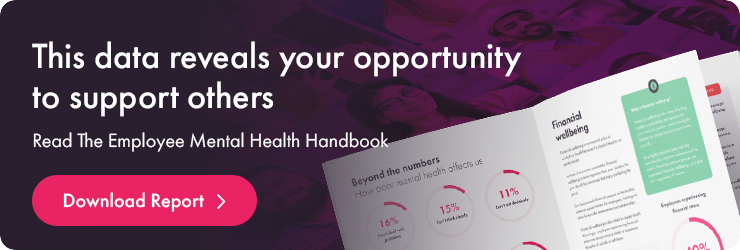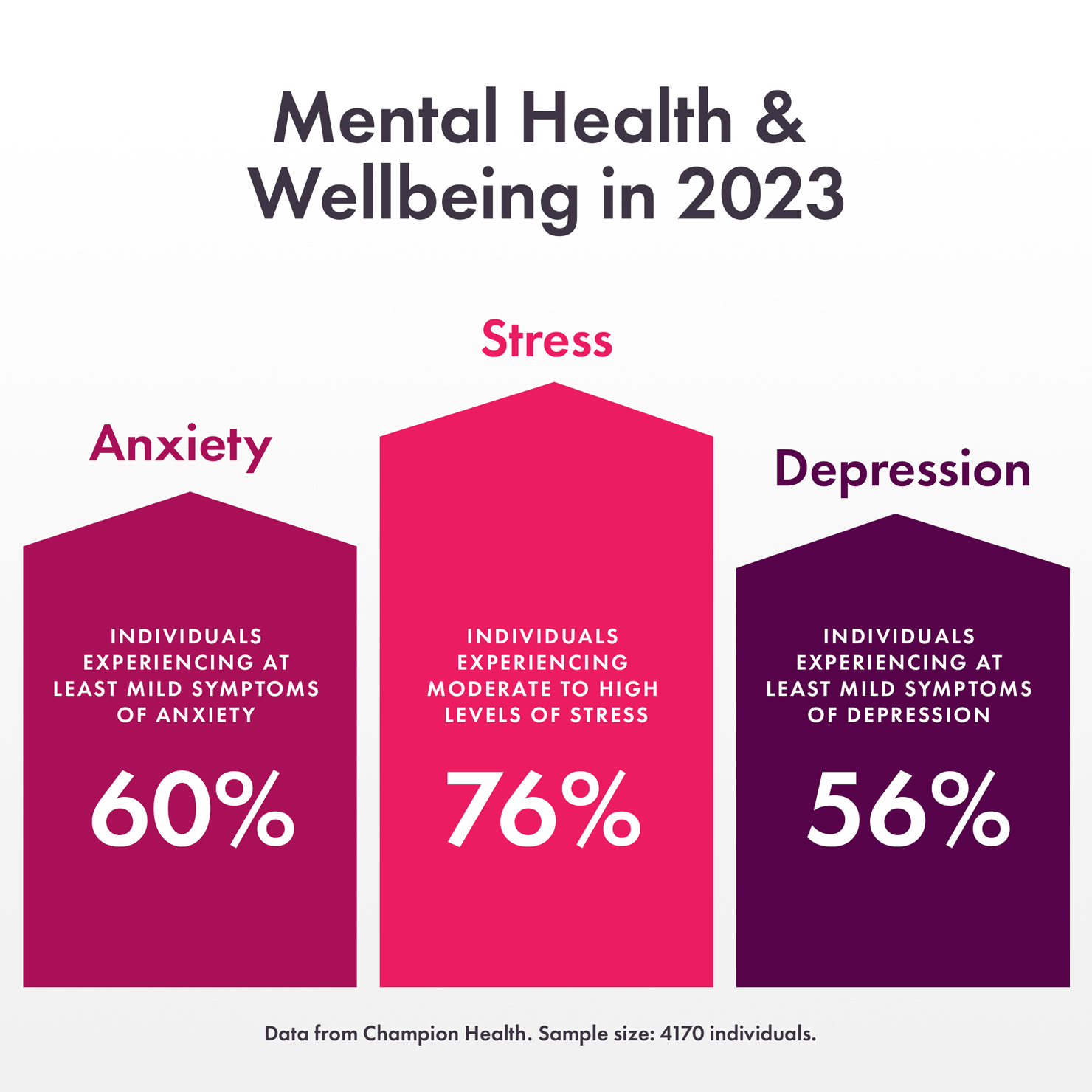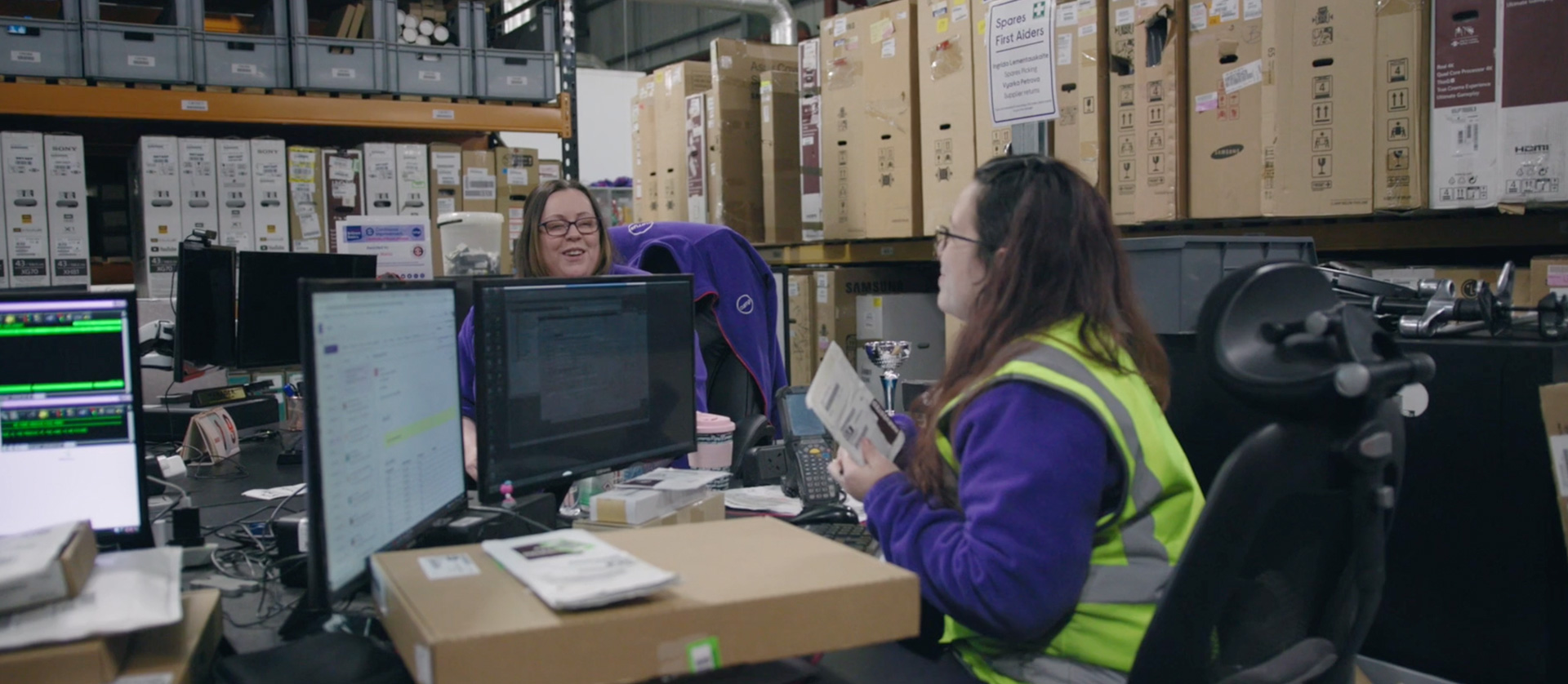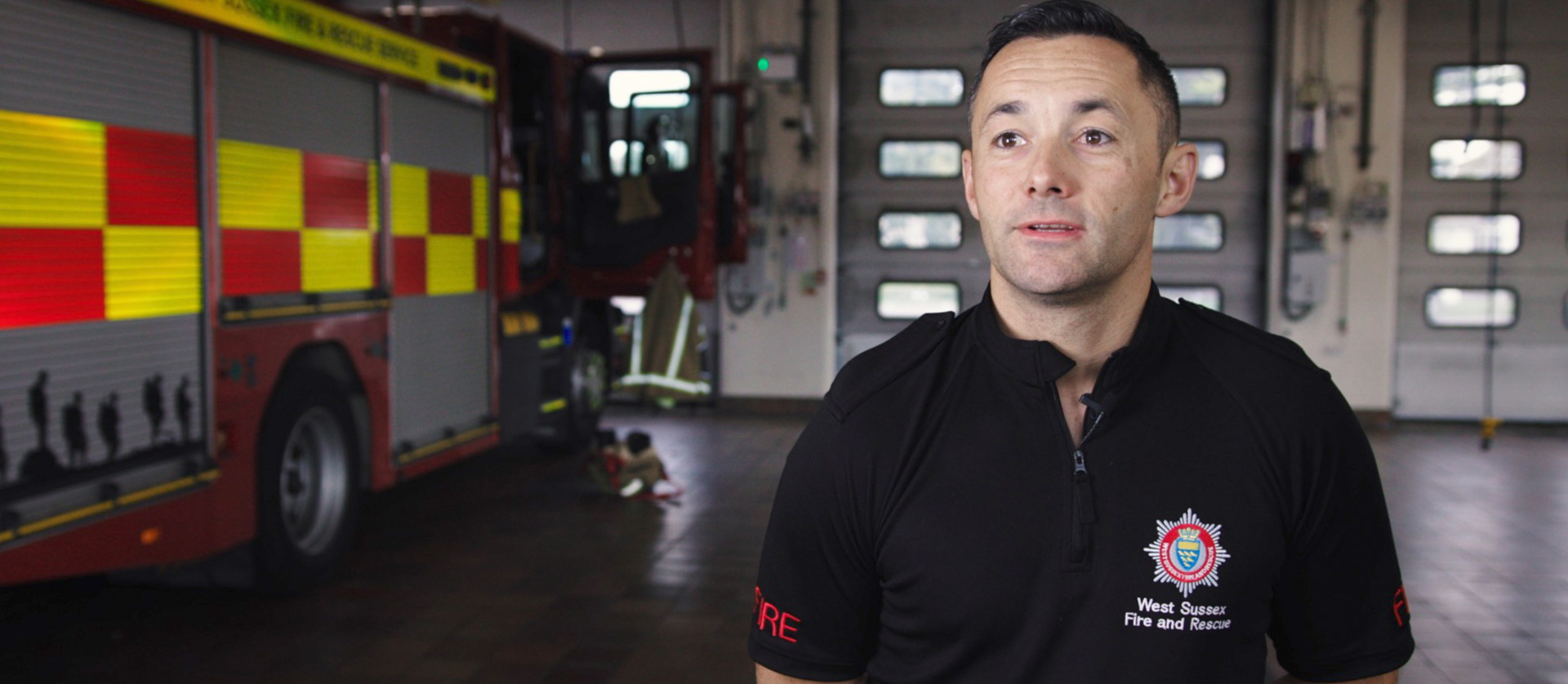As one of the largest awareness events in the UK, Mental Health Awareness Week, is a key opportunity for wellbeing and HR professionals to get their organisations involved and make a real difference.
So, what’s the theme this year and how can you get involved? In this guide, you’ll learn:
- What week is Mental Health Awareness Week?
- Who organises Mental Health Awareness Week?
- What’s the theme for this year?
- How can my organisation get involved?
What week is Mental Health Awareness Week?
Mental Health Awareness Week takes place every year in May.
This year, Mental Health Awareness Week runs from Monday 15th May to Sunday 21st May 2023.
Who organises Mental Health Awareness Week 2023?
Mental Health Awareness Week is an annual event organised and hosted by The Mental Health Foundation, the UK’s leading charity for mental health.
Now in its 22nd year, the event has grown to become one of the biggest awareness weeks across the UK and globally.

What’s the theme for Mental Health Awareness Week 2023?
This year, Mental Health Awareness Week will explore anxiety, how it affects our mental health and what we can do to manage our anxiety and support those around us.
Anxiety is a normal emotion for all of us. But, for many, it can get out of control and become a significant mental health problem.
“We’ve chosen anxiety as the Mental Health Awareness Week theme this year to kickstart a nationwide conversation, encouraging people to share their own experiences and any helpful ideas on how they manage anxiety,” says Alexa Knight, Director of England at the Mental Health Foundation.
Many external factors can influence feelings of anxiety, from relationships to losing a job. Clearly, we can also get anxious when we cannot meet our basic needs, like heating our home or purchasing food.
It’s one of the most common mental health problems we face. Within the workplace 60% experience at least mild symptoms of anxiety, according to research from The Workplace Health Report: 2023.
For more statistics around anxiety, take a look at this article summarising the most recent anxiety statistics.

As you might imagine, many of us have different experiences of anxiety and not everyone is affected equally. Anxiety (and depression) is more common among the young, with the 16-34 age bracket most affected.

With this said, there is an upside. We can make positive changes to manage our anxiety or support those around us. That’s why the Mental Health Foundation are focusing on anxiety for this year’s Mental Health Awareness Week.
This event aims to increase people’s awareness and understanding of anxiety by providing key information on the things that can help prevent it become a problem.
How can my organisation get involved in Mental Health Awareness Week?
In the current cost of living crisis, over one-third of adults feel anxious about their finances. Our careers are closely linked to our financial health so employers have a clear role to play in Mental Health Awareness Week 2023.
Get your organisation and colleagues involved in Mental Health Awareness Week by raising awareness and inspiring action – whether that’s through sharing your story or donating.
1. Encourage your leaders to become role models
Leaders play a crucial role in creating healthy workplace cultures in which mental health can be discussed openly, without bias or judgement.
Your people will model themselves after the behaviour of your leaders. And if your leaders can be open with their experiences of anxiety, this gives others in the organisation informal permission to do the same.
But how do you get them involved? One of the most effective routes is to ask your leaders to share their stories. And if you already are a leader, you can start doing this right now.
Whether you’re utilising your internal communications platforms or even public channels like LinkedIn, encourage your leaders to share their experience of loneliness – or their mental health challenges more broadly.
And if you want more guidance for leaders on how to talk about mental health at work, watch the video below and read on for more free resources.
2. Share your stories
Sharing stories is not just limited to leaders, everyone can get involved and make a difference. This year, The Mental Health Foundation is asking everyone to contribute their own stories of anxiety.
Sharing our own stories helps reduce the stigma around anxiety and challenges the stereotypes about who experiences it and how it affects us.
Encourage everyone in your organisation to get involved – and with participation from your leaders, you’ll likely see an even greater response.
The Mental Health Foundation is asking the public to contribute their stories on social media with the hashtag #ToHelpMyAnxiety and #MentalHealthAwarenessWeek. Be sure to include these tags in your internal communications so your people can get involved.
The Mental Health Foundation has created a page that explores how you and your organisation can get involved on social media. Discover it here.
3. Donate
Another fantastic way to provide support is through donating. This year, The Mental Health Foundation is asking for direct donations.
To donate and learn more about where your money goes, visit the official support and donation page.
For those not ready to share their personal stories, running a donation campaign aligned with Mental Health Awareness Week within your organisation is a rewarding way to get your people involved.
4. Discover the official resources
The Mental Health Foundation has provided plenty of ways for you to get involved (whether at work or in your communities).
We particularly like their resources page, in which you’ll find Zoom backdrops, branded assets and guides. Access their resources page here.
5. Share expert insights and guides
We love creating guides and resources to help organisations improve the wellbeing of their people.
Share the resources below with your employees during Mental Health Awareness Week, or use them to boost your knowledge:
- How to talk about mental health in the workplace
- How to spot mental health issues at work
- How to support a colleague in crisis
- Talking about Mental Health in a Staff Appraisal or 1:1
- Why it’s okay not be okay [Podcast]
- Children’s mental health: Toolkit for parents and kids [Guide]
- The Workplace Health Report: 2023 [Guide]





